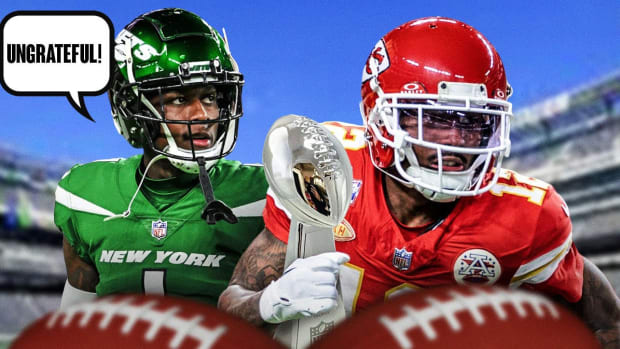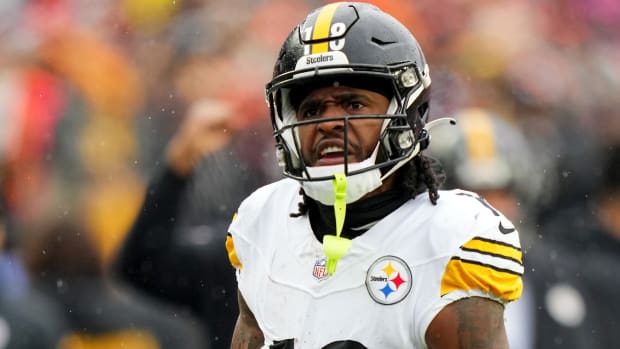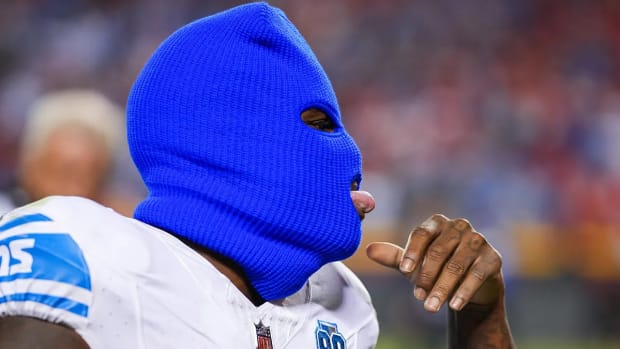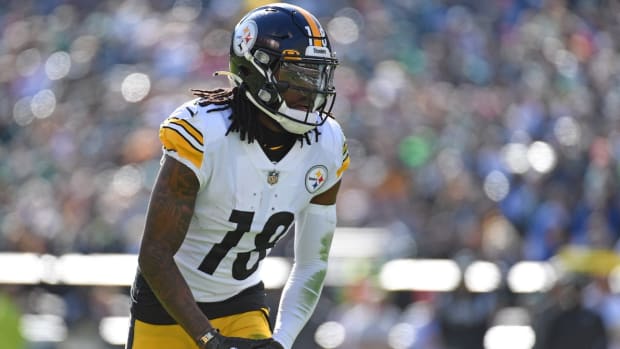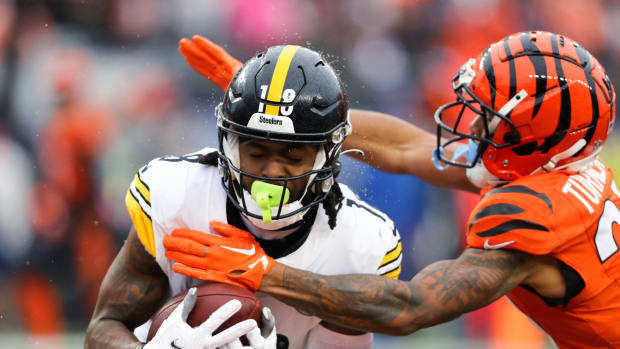Analysis: Brady and Garoppolo’s Sharing of an Agent Adds to Patriot Intrigue
ESPN’s much-discussed story on what is described as growing tension inside the New England Patriots noted that Tom Brady and Jimmy Garoppolo share the same agent, California attorney Don Yee. The author of the ESPN story, Seth Wickersham, reports that Brady and Garoppolo sharing an agent “complicated” efforts by the Patriots to retain both quarterbacks. Those efforts proved unsuccessful—in October the Patriots dealt Garoppolo, set to become a free agent this offseason, to the San Francisco 49ers in exchange for a 2018 second-round pick. Since that time, Garoppolo has become the 49ers starting quarterback and he led the team to a 5-0 record to close out the 2017 regular season. While it’s too soon to objectively evaluate the trade, early returns suggest that the 49ers got the much better end of it.
The Patriots’ motivations to trade Garoppolo appear multi-layered, but the sharing of an agent could have played a pivotal role. The Patriots, Wickersham reports, were uncertain as to why Garoppolo and Yee rejected “out of hand” four-year contract offers to pay the 26-year-old QB in the ballpark of $17 million to $18 million per year. While the pay would have been below the salaries of Brady and some other starting NFL quarterbacks, it would have still been quite high.
Had Garoppolo accepted one of those offers, it would have allowed the Patriots to potentially replace the 40-year-old Brady with Garoppolo at some point over the next few years. Wickersham observes that the Patriots were unable to sweeten the deal in a critical way because Yee was the agent. Had Yee not been the agent for both quarterbacks, Patriots head coach Bill Belichick could have assured Garoppolo that he would eventually become the starter. But with Yee as the agent, communicating such an assurance was impracticable. Belichick knew that Yee would have relayed the assurance to Brady, who might have interpreted it as a sign that the team was looking to push him out. Such a development would have created a new set of problems and headaches for the Patriots.
In hindsight, Garoppolo is probably happy that he declined to sign one of the Patriots’ four-year offers. He is now poised to earn much more in free agency. For their part, the 49ers have the salary cap space to offer Garoppolo a massive multi-year deal that would far eclipse what he would have earned with the Patriots. One might argue the situation played out in an optimal way for Garoppolo.
Still, the concept of the veteran starting quarterback and his young backup quarterback sharing the same agent is not without its complexities. NFL agents are licensed through the NFLPA, which is the exclusive bargaining representative of NFL players. In accordance with the National Labor Relations Act, the NFLPA delegates individual player contract bargaining authority to agents so long as agents meet certain criteria. One key criterion is that agents pass a standardized test administered by the NFLPA. The test requires agents display a solid command of NFLPA regulations.
Under NFLPA regulations, agents are obligated to “avoid any conflict of interest which could potentially compromise the best interests of NFL players.” Similarly, agents are forbidden from “engaging in any other activity which creates an actual or potential conflict of interest with the effective representation of NFL players.”
Yet the NFLPA has not interpreted this language to prohibit agents from representing teammates who are clearly in competition with one another. NFLPA agents can also represent coaches and players, despite the obvious potential for conflict in that setting (by comparison, the National Basketball Players’ Association forbids NBA agents from simultaneously representing NBA coaches and NBA players).
Consider this conflict of interest as it applied to Brady and Garoppolo. Both appear to have been on friendly terms, but both also wanted to be a long-term starting quarterback. From the standpoint of playing time, then, Yee could not have advocated for one to be the Patriots’ starting quarterback without adversely impacting the chances of the other to be the starter. In fact, in order for Yee to advocate that both Brady and Garoppolo be starting NFL quarterbacks, he had to advocate for the Patriots to trade Brady or Garoppolo.
This conflict is not limited to playing time. Consider salaries. While in theory the Patriots could have manipulated their payroll to be in a position to pay both Brady and Garoppolo top dollar, reality suggests otherwise. The Patriots, like every team, are bound by the NFL’s salary cap. Even if the Patriots employed the most creative salary cap guru around, paying both Brady and Garoppolo top dollar would have likely necessitated cutting a number of talented veterans. Such a move would have seemed counterproductive in terms of winning games, especially given that only one of Brady and Garoppolo could have been on the field.
There is also the potential that having the same agent can undermine endorsement opportunities. There are certain “A list” sports apparel, footwear and technology companies that players seek to endorse. If one of those companies expressed interest in hiring Brady or Garoppolo, to whom would Yee have directed the negotiations?
As a point of comparison, attorneys are more limited in their ability to take on client matters where there exists the potential for conflict. Under Rule 1.7 of the Model Rules of Professional Conduct, an attorney cannot represent one client if it would be “directly adverse to another client.” Similarly, a conflict for an attorney exists if “there is a significant risk that the representation of one or more clients will be materially limited by the lawyer's responsibilities to another client, a former client or a third person or by a personal interest of the lawyer.”
There is, of course, an easy fix for an NFL player who is uncomfortable with his agent representing the player with whom he is in direct conflict: fire the agent and hire a new one. Brady and Garoppolo were obviously aware of the conflict while they were teammates. And they were apparently O.K. with it. In fact, they’re probably glad it existed. Given that Brady is expected to play for several more seasons as the Patriots’ starting quarterback, and given that Garoppolo is set to receive a massive contract and could lead a resurgent 49ers team for years to come, it seems that both men have reason to feel positive about Yee’s representation—in spite of the conflict.
Michael McCann is SI’s legal analyst. He is also an attorney and the Associate Dean for Academic Affairs at the University of New Hampshire School of Law, and co-author with Ed O'Bannon of the forthcoming bookCourt Justice: The Inside Story of My Battle Against the NCAA.
• Question or comment? Email us at talkback@themmqb.com.

































